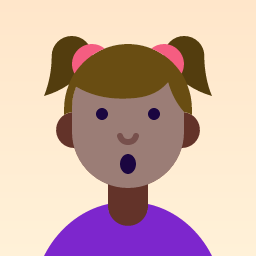Learning how to express compliments in different languages is a wonderful way to connect with people from diverse cultures. In this guide, we will explore different ways to say “I am beautiful” in Chinese.
Formal Ways to Say “I Am Beautiful” in Chinese
When it comes to formal expressions, it’s important to consider the context and relationship between speakers. Here are a few polite ways to express beauty in Chinese:
1. 我很漂亮 (Wǒ hěn piàoliàng)
This is a direct translation of “I am beautiful” in Chinese. It’s the standard phrase used to express beauty, and it’s suitable for most situations. However, it’s worth noting that Chinese culture often values humility, so while it’s acceptable to use this phrase to acknowledge your own attractiveness, it’s more favored when someone else compliments you in this manner.
2. 我长得很漂亮 (Wǒ zhǎng de hěn piàoliàng)
Adding “zhǎng dé” before “hěn piàoliàng” emphasizes the appearance aspect. It can be translated as “I am very beautiful” or “I look very beautiful.” This phrase is commonly used when someone wants to compliment their physical appearance modestly.
Informal Ways to Say “I Am Beautiful” in Chinese
Informal expressions are more commonly used among friends or people of the same age group. They create a friendly and relaxed atmosphere. Here are some casual yet affectionate ways to express beauty in Chinese:
1. 我好美哦 (Wǒ hǎo měi ó)
This phrase translates to “I’m so beautiful.” It is an informal expression often used among friends to boast or express self-confidence in a playful manner. By adding “ō” at the end, it conveys a tone of admiration or surprise about one’s beauty.
2. 我的颜值很高 (Wǒ de yán zhí hěn gāo)
This phrase literally means “My appearance value is high” and is commonly used by Chinese millennials. It has become popular due to the rise of social media culture and is used to convey a sense of one’s own beauty or attractiveness. It’s often accompanied by selfies or photos posted on social platforms.
Tips for Proper Usage
Cultural context is crucial when using compliments in Chinese. Here are a few tips to keep in mind:
1. Be mindful of the situation
While it’s common to give compliments in Western cultures, Chinese culture places more emphasis on indirect and humble expressions. It’s generally better to receive compliments gracefully rather than openly acknowledging them.
2. Use the appropriate level of formality
Match the level of formality with the person you’re conversing with. If you’re unsure, it’s safer to lean towards a more formal expression.
3. Observe regional variations
Chinese is a rich language with various dialects and regional variations. The expressions mentioned above are suitable for Mandarin Chinese, which is spoken by the majority of the population in mainland China. However, regional variations may exist, so it’s always helpful to ask a native speaker from the specific region for guidance.
Examples:
Let’s take a look at a few examples to see how these phrases can be used in context:
Example 1:
Person A: 你长得真漂亮啊!
Person B: 谢谢你,你也很漂亮!(Nǐ zhǎng dé zhēn piàoliàng a!)
Person B: Xièxiè nǐ, nǐ yě hěn piàoliàng!)
Translation:
Person A: You look so beautiful!
Person B: Thank you, you look beautiful too!
Example 2:
Person A: 今天发了一张照片,大家都说我好美哦!(Jīntiān fā le yì zhāng zhàopiàn, dàjiā dōu shuō wǒ hǎo měi ó!)
Person B: 当然啦,你每天都很美啊!(Dāngrán la, nǐ měitiān dōu hěn měi ā!)
Translation:
Person A: I posted a picture today, and everyone says I’m so beautiful!
Person B: Of course, you’re beautiful every day!
Conclusion
Expressing beauty can be done in both formal and informal ways in Chinese. Remember to be mindful of the context and relationship with the person you’re conversing with. Use formal expressions in official or unfamiliar situations, while informal expressions are more appropriate among friends and peers. Understanding the cultural nuances of compliments in Chinese will help you navigate social interactions more gracefully and enhance your connection with native speakers.

